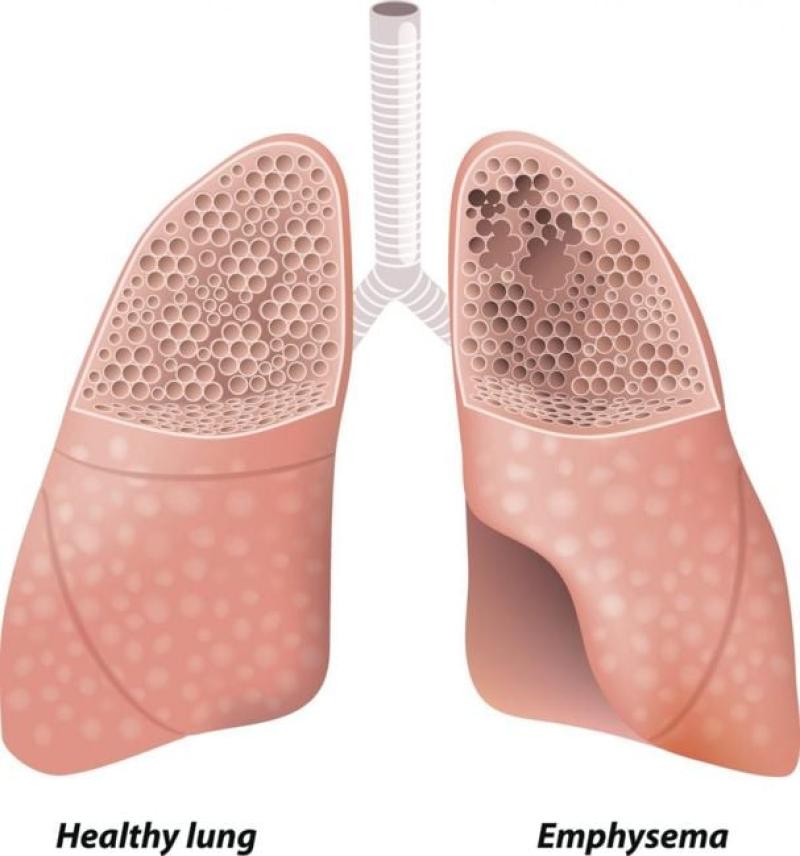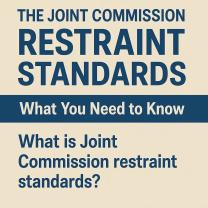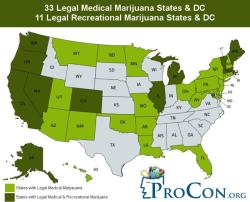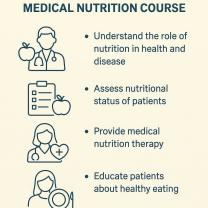How do you treat the four stages of emphysema?
Emphysema is a chronic lung condition that is a type of chronic obstructive pulmonary disease (COPD). The severity of emphysema is often categorized into stages based on the Global Initiative for Chronic Obstructive Lung Disease (GOLD) criteria. The four stages are labeled from mild to very severe (Stage 1 to Stage 4). The primary goals of treatment for emphysema are to relieve symptoms, slow disease progression, and improve overall quality of life. Here are general treatment approaches for each stage:
Stage 1 (Mild):
Smoking Cessation:
- The most critical intervention at all stages is to quit smoking, as it is the main cause of emphysema. Smoking cessation can slow disease progression and improve symptoms.
Bronchodilators:
- Short-acting bronchodilators, such as albuterol, may be prescribed to help open airways and relieve symptoms.
Stage 2 (Moderate):
Smoking Cessation:
- Emphasize the importance of continued smoking cessation efforts.
Bronchodilators:
- Long-acting bronchodilators, such as tiotropium or long-acting beta-agonists (LABAs), may be prescribed to provide sustained relief.
Pulmonary Rehabilitation:
- Pulmonary rehabilitation programs, including exercise training and education, can improve exercise capacity and quality of life.
Stage 3 (Severe):
Smoking Cessation:
- Reinforce the need to quit smoking if not already achieved.
Bronchodilators:
- Inhaled corticosteroids may be added to improve lung function and reduce inflammation.
Pulmonary Rehabilitation:
- Continued participation in pulmonary rehabilitation programs is beneficial. They provide structured exercise and education on managing symptoms.
Oxygen Therapy:
- For those with low blood oxygen levels, supplemental oxygen may be prescribed to improve oxygenation and reduce strain on the heart.
Stage 4 (Very Severe):
Smoking Cessation:
- Stress the importance of maintaining smoking cessation.
Bronchodilators:
- Long-term oxygen therapy is often a key intervention at this stage to improve oxygen levels.
Pulmonary Rehabilitation:
- Continued participation in pulmonary rehabilitation programs, adapting exercises to individual capabilities.
Surgical Options:
- In some cases, lung volume reduction surgery or lung transplantation may be considered for specific individuals with very severe emphysema and significant impairment.
End-of-Life Planning:
- In advanced stages, discussions about end-of-life preferences and advanced care planning may be appropriate.
It's crucial for individuals with emphysema to work closely with their healthcare team to develop a personalized treatment plan based on the severity of their condition. Regular follow-up appointments, medication management, and lifestyle modifications are essential components of managing emphysema at any stage. Additionally, vaccinations, including annual flu shots and pneumonia vaccines, are recommended to prevent respiratory infections that can exacerbate symptoms.
Sure, here is a comprehensive overview of emphysema management, including symptom management, stage-specific treatment options, and lifestyle modifications:
Emphysema Overview
Emphysema is a chronic lung disease characterized by the destruction of air sacs (alveoli) in the lungs. This damage reduces the lung's surface area for gas exchange, leading to difficulty breathing and other debilitating symptoms. Emphysema is a progressive disease, meaning it worsens over time if left untreated.
Symptom Management
Managing emphysema symptoms focuses on improving breathing and reducing exacerbations (sudden worsening of symptoms). Common treatment options include:
Bronchodilators: These medications relax the muscles around the airways, making it easier to breathe. They are typically inhaled and can provide quick relief.
Anti-inflammatory medications: These medications reduce inflammation in the airways, which can help improve breathing and slow the progression of emphysema.
Oxygen therapy: For individuals with severe emphysema who have low blood oxygen levels, supplemental oxygen can improve breathing and overall health.
Pulmonary rehabilitation: This comprehensive program includes exercise training, breathing techniques, and nutritional counseling to improve lung function, strengthen muscles, and manage symptoms.
Stage-Specific Treatment Options
Treatment options for emphysema may vary depending on the stage of the disease:
Early Stage Emphysema:
Lifestyle modifications: Smoking cessation, regular exercise, and a healthy diet are crucial to slow progression and manage symptoms.
Medications: Bronchodilators and anti-inflammatory medications may be prescribed to manage symptoms and reduce exacerbations.
Moderate Stage Emphysema:
Continued lifestyle modifications: Maintaining smoking cessation, regular exercise, and a healthy diet is essential.
Medications: Regular use of bronchodilators and anti-inflammatory medications may be required.
Oxygen therapy: Supplemental oxygen may be needed for individuals with low blood oxygen levels.
Severe Stage Emphysema:
Intensive lifestyle modifications: Smoking cessation, regular exercise, and a healthy diet remain crucial.
Maximized medications: Bronchodilators, anti-inflammatory medications, and oxygen therapy may be used together.
Surgical interventions: Lung volume reduction surgery or lung transplantation may be considered for select individuals.
Lifestyle Modifications and Pulmonary Rehabilitation
Lifestyle modifications play a critical role in emphysema management:
Smoking Cessation: Quitting smoking is the most important step to slow the progression of emphysema and improve lung function.
Regular Exercise: Engaging in regular physical activity strengthens muscles, improves breathing efficiency, and enhances overall health.
Healthy Diet: Maintaining a balanced diet provides essential nutrients for lung health and supports overall well-being.
Manage Weight: Maintaining a healthy weight reduces strain on the lungs and improves breathing.
Avoid Respiratory Irritants: Avoid exposure to pollutants, smoke, and fumes to minimize airway irritation and inflammation.
Pulmonary rehabilitation is a comprehensive program that provides education, exercise training, and breathing techniques to help individuals with emphysema manage their symptoms, improve lung function, and maintain independence. It includes:
Exercise Training: Guided exercise programs tailor to individual needs and abilities help improve muscle strength, endurance, and breathing efficiency.
Breathing Techniques: Learning proper breathing techniques can optimize oxygen intake and reduce shortness of breath.
Nutritional Counseling: Personalized dietary advice ensures adequate nutrient intake for lung health and overall well-being.
Education: Understanding emphysema, its management, and available resources empowers individuals to make informed decisions and take control of their health.
By combining stage-specific treatment options, lifestyle modifications, and pulmonary rehabilitation, individuals with emphysema can effectively manage their symptoms, improve their quality of life, and slow the progression of the disease.













